
Get a Quote
Get a Quote and Find Services to Fit Your Needs 50000+ Satisfied Clients
5000+ Licenses & Registration
15 Branches across India
75 Years + Combined experience
Satisfied Clients
Services
Years Combined Experience
Get Started!
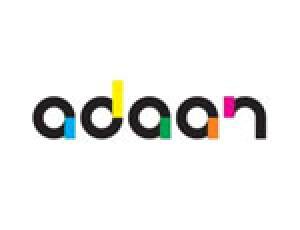
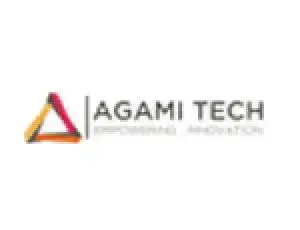

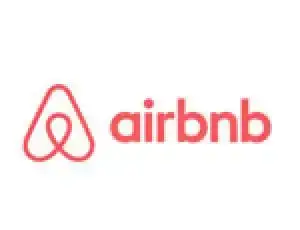
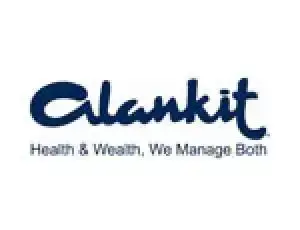
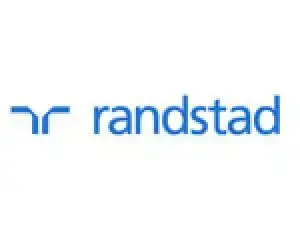

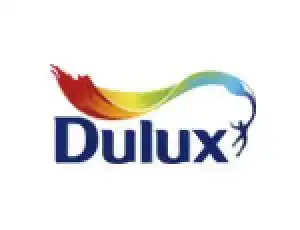
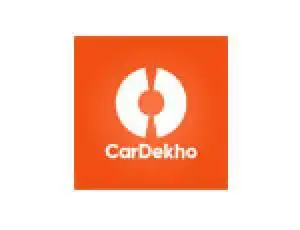


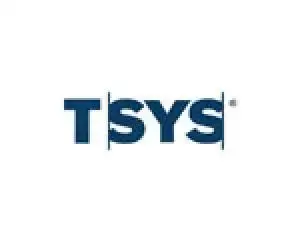
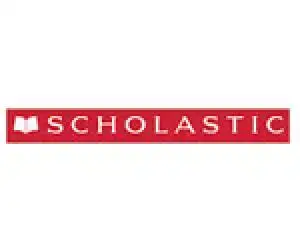

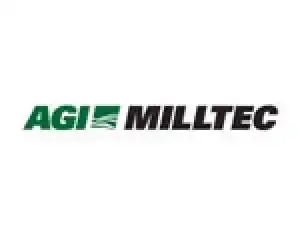
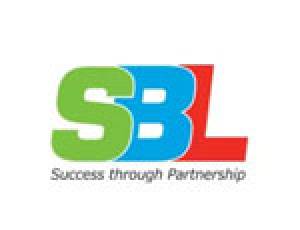
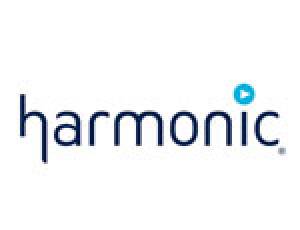
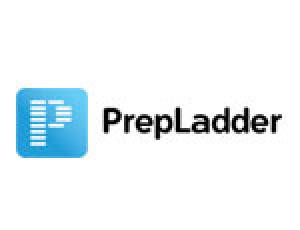





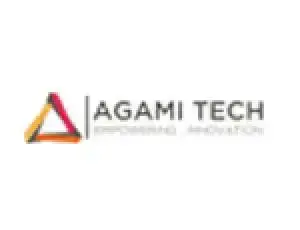
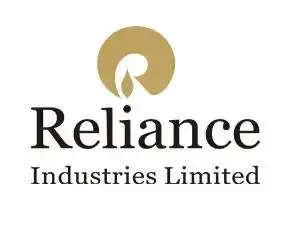
Loan refers to an amount of money borrowed by an individual or entity from banks or other financial institutions (like NBFCs) to financially manage a planned or an unplanned event.
This borrowed amount must be paid back by the individual or entity along with interest, and within a specified period of time. A loan can be obtained for various reasons such as for purchasing a house, car, expanding business operations, etc.
Here are some benefits offered by bank loans:
They offer easy access to money for planned or unexpected expenses in case of emergency.
For small loans offered by banks, a collateral is generally not a requirement.
Generally speaking, bank loans have lower interest rates than other loan kinds including overdrafts, and venture capital.
A business loan's interest is usually tax deductible.
Because the lender has less risk, collateral loans usually come with lower interest rates.
Lower monthly installments and larger loan amounts are usually available with long-term loans.
There are various types of loans available in India based on different requirements:
A personal loan is a loan, borrowed from a fund lending institution like a bank, with an unspecified purpose. This amount can be used by the borrower at their discretion, such as for a vacation, a wedding, a home renovation, etc.
A personal loan also requires a mortgage. It can be secured against anything of value, a shop, a home, or a car, which if the case of default in repayment, the lender can seize to recover his/her losses. Likely to this, many people thus opt for an unsecured loan without collateral.
The net amount of the instant personal loan to be repaid by the lower depends upon two factors; interest rate and the loan term. With collaterals attached, secured loans stoop for a lower interest rate than an unsecured loan which has a high-risk factor. Also, an impeccable credit record is needed to apply. The best personal loan rates range from 9.99% pa and 44% pa depending on the loan amount availed by the borrower.
A car loan is a type of loan that is secured against the Car you want to purchase i.e., the purchased car itself serves as the collateral for the loan. But if you commit a default on your repayments, the lender can seize your car. The loan is paid in equal fixed installments over a period of time, and just like a mortgage, the loan lender retains ownership of the car till the final payment of the loan.
Considering that the lender has financial control over the car and the loan is secured, then the debt is at a lower risk, which significantly reduces the rate of interest for the borrower. In car loans, interest rates remain fixed, so borrowers are not subjected to the increases which is generally the case with unsecured personal loans.
Car loans usually have a lower interest rate, are easier to obtain even if you have a mediocre credit history and they are a convenient finance solution. But your possession of the car hangs in balance until the final repayment is made and a considerable upfront deposit is required to secure the loan.
Mostly, car loans have a fixed period of repayment such as 36, 48, 60, or 72 months and like in the case of a personal loan, the shorter the term of repayment, the higher the monthly repayment. Less-than-average credit history is alright with the lenders. The interest rate or borrowing amount is more dictated by the price of the car rather than the credit history.
Vehicle loans are the type of unsecured loans offered to borrowers that are usually individuals, trusts, partnership firms, organizations, etc., for the purchase of vehicles for personal, commercial, or business purposes. Vehicle loans are also availed by those who are involved in the business of mass transit. A vehicle loan can be used to purchase bikes, cars, buses, trucks, tippers, tankers, light and small vehicles, etc.
As previously stated, vehicle loans are available to those whose needs fund the purchase of the vehicle for personal, commercial, or business purposes. The application process for the vehicle loan is quick, hassle-free, and requires fewer documents and paperwork.
If the borrower’s profile is lucrative enough to match the criteria put forward by the lenders, the chances to get a vehicle loan are at a low interest. Also, the processing time for the vehicle loan is fast because of easy documentation and approval. Banks provide vehicle loans at affordable rates of interest without the want of any secured debt. Banks, in case of providing vehicle loans, assign a personal relationship manager for the loan process right from start till procurement of the vehicle. The personal relationship manager will do all documentation on the borrower’s behalf and address every issue related to the loan. After the successful submission of documents, the loan amount will be disbursed to the borrower within seven working days.
Home loans are a type of secured credit loan that allows borrowers to purchase and/or construct the home of his/her dreams. There are all sorts of house loans offered in India that are mentioned below:
If you want to purchase land to build your new house, you'll need land purchase financing.
If the construction of the house is what you are seeking, then you need construction financing for the house.
If you want to transfer the remaining balance of the existing mortgage to a lower-interest loan, then you can opt for a balance transfer on your home loan.
An add-on loan means you want to raise that fund to utilize it to renovate your existing home or to opt for the most up-to-date interior design you seek for your new home.
In case of purchasing a new property, the lender will ask for a down payment of at least 10%-20% of the property's worth. Banks list out the eligibility criteria for home loans. Primarily, banks look at your credit history to understand your repayment habits. A preferred credit score is 750 and above.
Some other important factors that are taken into account by the banks are the age of the borrower, your employment details, your minimum annual salary, collateral security, margin requirements, and your residency status, whether you are a resident of India or an NRI.
The gold loan, or a loan against gold, is a type of secured loan that a borrower takes from a lender in place of gold ornaments and gold jewelry possessed by the borrower. The loan amount sanctioned to you is a certain percentage of the gold’s value. The borrower can repay it through monthly installments after which they can get the gold articles back.
To its advantage, the gold loan has no restrictions on its end use, unlike the other types of secure loans such as home or car loans.
So it is a great way to meet your sudden monetary requirements of yours like a wedding, a family vacation, or a child’s education. Fortunately, many of the private and nationalized banks in the country along with NBFCs (Non-Banking Financial Companies) offer gold loans at affordable interest rates.
The process of gold loans, like many other secured loans, is similar.
Firstly, the credit borrower takes his gold articles to the lender along with the required set of documents.
The lender then evaluates the gold articles and verifies the submitted documents.
After the successful evaluation, the lender sanctions the loan amount to the borrower.
The borrower then, in accordance with the loan agreement, pays the principal amount along with the interest amount in monthly loan repayment transactions and then finally gets his/her gold articles back.
Insta loan is a kind of loan which can be availed quickly or instantly. These loans are often unsecured. However, their interest rates and processing fees can be higher compared to other secured loans.
Insta loans are most suitable for times of emergencies, such as car repair after an accident or medical emergency. Compared to other loans, insta loans offer a small sum of money up to Rs. 50,000 to the borrowers. Most major banks in India offer insta loan to their customers.
Business loan is a kind of loan taken by a business entity for repayment of debt, purchasing new machinery, expanding business operations, setting up new branches, etc. This loan is also known as a commercial loan.
Just like any other type of loan, business loan needs to be repaid by the business in a timely manner along with the interest amount. Generally, the business loan is a large sum of borrowed money which can range from a few lakhs to crores of rupees.
Insta loan is a kind of loan which can be availed quickly or instantly. These loans are often unsecured. However, their interest rates and processing fees can be higher compared to other secured loans.
Insta loans are most suitable for times of emergencies, such as car repair after an accident or medical emergency. Compared to other loans, insta loans offer a small sum of money up to Rs. 50,000 to the borrowers. Most major banks in India offer insta loan to their customers.
A secured loan is a kind of loan in which an asset, say a car or a property, is pledged by a borrower as the collateral for the loan which acts as a secured debt that borrower owes to the loan creditor. This secured debt is used against the collateral if the borrower defaults on the loan repayments thus allowing creditor to take possession of the asset used as the collateral and then the creditor may sell it to regain some or the entire amount originally loaned to the borrower.
An example of this is the foreclosure of a house. In case of a secured debt, the lender has been granted a portion of the bundle of rights to the specified property and if the sale of the collateral does not compensate the loan amount to pay off the debt, then the creditor can also obtain a deficiency judgment against the borrower for the remaining loan amount. So it is very important for the secured loan borrowers to understand what asset they should use to offer as the collateral and also weigh the value of that asset against a possible collateral loss if the secured loan plunges into the default.
While considering a secured loan, one has to offer an asset as security in the first place. But if the needful borrower doesn’t have any assets, a loan without security — an unsecured loan, is needed. Unsecured loan refers to a loan which doesn’t require any collateral from the borrower.
Nowadays, many companies are based on intangible assets, like if you’re a software company or a consultancy firm, you’re likely to have a rented office, computers, but not much in terms of tangible assets and that’s where the unsecured business loan comes in. When there’s no security, the trading history of the business becomes imperative and the moneylender might ask for personal guarantees too.
There are various benefits to the unsecured loans, like:
Quick processing — no valuations necessary and the legal process is simple.
No asset requirements, making it an accessible type of finance.
Up front costs are lower, or not required at all.
But the overall cost is usually higher; the lender charges higher interest rate because of higher risk.
To lower the level of risk involved, the lender, sometimes, asks for a personal guarantee from a company director who holds this unsecured loan. Personal guarantees might seem like a big commitment but they help companies to secure higher levels of funding.
Different types of business apply for an unsecured business loan, including limited companies, LLPs (Limited Liability Partnerships) and sole traders. Eligibility criteria points of each of these companies vary according to the lender and personal guarantees may be required which the borrower company has to meet for the lender’s requirement of the minimum annual turnover specification.
Did you know that you can obtain loan against your insurance policy? Yes, it’s true. You can obtain a loan against a list of authorized policies including unit-linked plans, endowment plans, whole life plans and income plans from many insurance companies. However, a loan cannot be obtained against a term insurance policy.
Loans against insurance policies allows customers to leverage their existing insurance policies and generate cash reserves quickly.
Many banks and other financial institutions offer loans against securities to their customers so that they can meet their short term funding requirements. Loans against mutual funds, shares, government bonds, etc. fall under this category.
Such loans allow individuals to fulfill their dreams without having to liquidate their investments. To avail loan against mutual funds and shares, you need to fill out a loan application form and grant a lien to the bank over the pledged mutual fund units. You must provide crucial details regarding the mutual funds such as the number of units, name of mutual fund scheme and folio number.
One of the most common opted choices of secured loan type is the LAP i.e., Loan Against Property. To obtain the required finances, the borrower will pledge to any of their residential, commercial, and/or industrial property. The loan amount depends on the lender and is determined according to a certain percentage of the borrower’s property's worth.
One doesn’t need to mortgage the whole property to the lender, like some lenders may require 50-60% of the property's worth, others may offer loan to as much as 80% of it. In a way, it is one of the best options for loan, as it allows the borrower to access the unused value of their property asset and that can be used to fund his/her personal ambitions.
In case of loan to channel fund for businesses, the company can employ an LAP for beneficiary reasons, like the business expansion, its research and development, and also in case of product development. In case of LAP, the ownership of the property stays with the borrower. When the borrower offers a property as the collateral, the ownership does not change. Also you can sell the property in case you are unable to repay the loan.
Fixed deposits are investment vehicles wherein the customers deposit a fixed amount of money for a fixed period of time and earn a certain amount of interest. In order to secure immediate funding, individuals can pledge their fixed deposits as loan collateral.
Generally, the loan which can be obtained against a fixed deposit is 90-95% of the amount deposited in FD.
If you want to avail loan, you can look up ‘loan near me’ on Google. Based on your loan requirements and best loan rates, you can choose the lender of your choice.
Loans on Credit Cards are a sort of pre-approved loans given to you based on your frequency usage of your credit card, your repayment and credit history. Loans on credit cards are without any documentation or collateral, a bank simply looks at your credit history and repayment record but not everyone who possesses a credit card can get a loan on it.
Loans on credit cards can be provided very quickly because the loans are pre-approved. These loans are quick loans for which disbursement takes just minutes or in some cases, seconds. Only pre-approved customers can get the loan that fast.
The repayment of this loan is done on EMIs (Easy Monthly Installments) over the time period that you have chosen for yourself. Upper limit for the tenure is 36 months. These EMIs then get added to the credit card statement and it must be paid before or on the due date along with payment for any other purchases made by you. Your credit limit is in accordance with the extent of your EMI amount. The funds from these kinds of Loans on Credit Cards can be spent as you see fit – use it for purchasing a consumer durable or for traveling or for a medical emergency or anything of choice.
Frequently Asked Questions (FAQs)
Q1. What are the documents required for a loan?
A. The documents required for a loan generally depend on the type of loan. Usually, documents for loan include adhaar card, pan card, bank statements, income tax return, loan application and utility bills.
Q2. Is it possible to top-up your loan amount?
A. Yes, it is possible to top-up the amount of your existing loan. You can speak to your lender about how to do this.
Q3. What happens if you don't repay loan?
A. If the borrower fails to repay the loan amount along with interest rate, the lender may take legal action against them.
Credit Card
Loans on Credit Cards are a sort of pre-approved loans given to you based on your frequency usage of your credit card, your repayment and credit history. Loans on credit cards are without any documentation or collateral, a bank simply looks at your credit history and repayment record but not everyone who possesses a credit card can get a loan on it.
Loans on credit cards can be provided very quickly because the loans are pre-approved, so its disbursement takes just minutes or in some cases, seconds. Only pre-approved customers can get the loan that fast.
The repayment of this loan is done on EMIs (Easy Monthly Installments) over the time period that you have chosen for yourself. Upper limit for the tenure is 36 months. These EMIs then get added to the credit card statement and it must be paid before or on the due date along with payment for any other purchases made by you. Your credit limit is in accordance with the extent of your EMI amount. The funds from these kinds of Loans on Credit Cards can be spent as you see fit – use it for purchasing a consumer durable or for traveling or for a medical emergency or anything of choice. .
Secured loan
A secured loan is a kind of loan in which an asset, say a car or a property, is pledged by a borrower as the collateral for the loan which acts as a secured debt that borrower owes to the loan creditor. This secured debt is used against the collateral if the borrower defaults on the loan repayments thus allowing creditor to take possession of the asset used as the collateral and then the creditor may sell it to regain some or the entire amount originally loaned to the borrower.
An example of this is the foreclosure of a house. In case of a secured debt, the lender has been granted a portion of the bundle of rights to the specified property and if the sale of the collateral does not compensate the loan amount to pay off the debt, then the creditor can also obtain a deficiency judgment against the borrower for the remaining loan amount. So it is very important for the secured loan borrowers to understand what asset they should use to offer as the collateral and also weigh the value of that asset against a possible collateral loss if the secured loan plunges into the default.
Unsecured business Loan
While considering a secured loan, one has to offer an asset as security in the first place. But if the needful borrower doesn’t have any assets, a loan without security — an unsecured business loan is needed. Nowadays, most companies are based on intangible assets, like if you’re a software company or a consultancy firm, you’re likely to have a rented office, computers, but not much in terms of tangible assets and that’s where the unsecured business loan comes in. When there’s no security, the trading history of the business becomes imperative and the moneylender might ask for personal guarantees too.
There are various benefits to the unsecured loans, like:
But the overall cost is usually higher; the lender charges higher interest rate because of higher risk.
To lower the level of risk involved, the lender, sometimes, asks for a personal guarantee from a company director who is this unsecured loan. Personal guarantees might seem like a big commitment but they help companies to secure higher levels of funding.
Different types of business apply for an unsecured business loan, including limited companies, LLPs (Limited Liability Partnerships) and sole traders. Eligibility criteria points of each of these companies vary according to the lender and personal guarantees may be required which the borrower company has to meet for the lender’s requirement of the minimum annual turnover specification.
LAP - Secured
One of the most common opted choices of secured loan type is the LAP i.e., Loan Against Property. To obtain the required finances, the borrower will pledge to any of its residential, commercial, and/or its industrial property. The loan amount depends on the lender and is determined according to a certain percentage of the borrower’s property's worth.
One doesn’t need to mortgage the whole property to the lender, like some lenders may require 50-60% of the property's worth, others may offer loan to as much as 80% of it. In a way, it is one of the best options for loan, as it allows the borrower to access the unused value of their property asset and that can be used to fund his/her personal ambitions. In case of loan to channel fund for businesses, the company can employ an LAP for beneficiary reasons, like the business expansion, its research and development, and also in case of product development. In case of LAP, the ownership of the property stays with the borrower. When the borrower offers a property as the collateral, the ownership does not change. Also you can sell the property in case you are unable to repay the loan.
Machinery Loan secured
A machinery loan is a kind of secured loan particularly used for business purposes, where the fund is used by the manufacturers and other business owners to acquire state-of-the-art machinery for their business operations. By setting up the new and advanced machinery, the production processes of businesses will boost up with a little investment. Rather than initially spending a higher amount on purchasing machinery, the machinery loan helps the business to increase its overall productivity without much loss of the capital.
One can get a loan amount of up to Rs.5 crore to purchase machinery/equipment for your business with a machinery/equipment loan. But the amount sanctioned may depend on many factors and also vary with lenders. An in-person visit to a financial institution is not required, any company can sit at home or in the workplace and apply for machinery loans online as many lending institutions have set up their online presence. This loan is basically unsecured i.e., you can get a machinery loan without pledging any asset or property as surety for the loan repayment.
.The Government of India offers tax benefits for many small businesses which can help them get machinery loans for their business operations. The interest payment businesses make for the repayment of the machinery loan is eligible for a tax deduction. But this does not apply to the principal part of the loan. Overall, the total taxable income of the company’s financial year will be reduced and this in turn, decreases the actual payable tax. .

★ ★ ★ ★ ★
I very much appreciate the fact that you guys possess tremendous knowhow of private limited company incorporation. You have exhibited professional and respectful manner towards my query and I would seriously recommend you guys to all the folks looking for outstanding business services.

★ ★ ★ ★ ★
Thanks to their support, I got my trademark successfully. I highly recommend their services for anyone needing help with their intellectual property. The person assigned to me was very cooperative and helpful.

★ ★ ★ ★ ★
Thanks to their support ragistrationwala team, I got my IP-1 license successfully and special thanks to Miss.Kanishka for your great and timing support !!!!!! I have archived my goal one step forward... Thanks for the entire team....

★ ★ ★ ★ ★
Really helped a lot in getting my both VNO licenses. Great experience working with the team and very humble team, thanks for providing the vno license on time.

★ ★ ★ ★ ★
I had a good time working with Registrationwala. Good team. I would recommend their services to others.

★ ★ ★ ★ ★
It was extremely great service of Registrationwala consulting firm, and this firm is providing the best services and worry about the client's required services along the client's satisfaction.

★ ★ ★ ★ ★
Superb Experince! Within no time the trademark registration was on.Highly professional team. I am very much Impressed with the prompt response and efficiency.Thank you.

★ ★ ★ ★ ★
We had taken ISP license from registration wala and the supporting person is very helpful to taken that license his communication and his work is satisfactory and thanks for those services

★ ★ ★ ★ ★
I sincerely appreciate your prompt support in helping me get the access license so quickly. Your professionalism and efficiency are truly commendable. Thank you for going above and beyond to assist me. Keep up the great work!